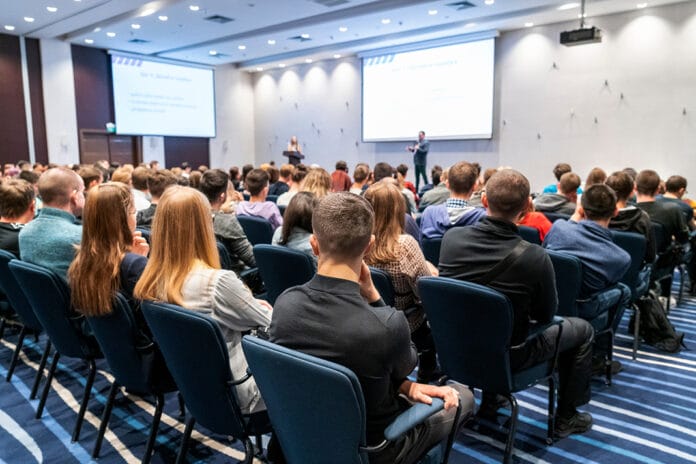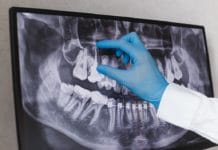I absolutely love attending dental conferences, especially when it is an excuse to travel. However, it can be overwhelming at times when there are numerous course options, networking opportunities, and social events happening within a very short timeframe.
Here are a few helpful tips and considerations to help you prepare for your next dental conference.
Register Early
I recommend registering early for any type of conference for a couple of reasons. One, it is usually considered an “early bird,” and it is likely the lowest cost compared to later months. Or, there may be a promo code when registration opens. If a promo code is available, it can save you money towards registration or a specific course you want to enroll in.
The second reason for registering early is that you are the first to select your course options before they fill up.
Registration Formats and Choosing Courses
Dental conferences can have different registration formats. For example, some conferences include all continuing education (CE) courses in the general registration fee. For others, the cost of courses is in addition to the conference registration fee.
Usually, you can register for the full (entire) conference or register for selected days. A “full conference badge” tends to include all courses, networking events, and social events for a single, lump-sum price. If you choose to attend on certain days and not the whole conference, you will typically receive access to all courses and events scheduled for that day for one price.
When you register, the conference website should allow you to review the course and networking schedule, and you can make your personal selections. If you change your mind about your selections, you can often either change your selections closer to the conference, or you don’t have to attend.
Once at the conference, if a registered attendee doesn’t arrive for a course they have registered for within a specific time frame after it begins, their spot will be given to someone on the waitlist. However, I have observed that courses at some conferences are no longer ticketed (meaning you don’t have to sign up for specific courses when registering for the conference), so you can simply walk in.
If the cost of courses is in addition to the conference registration, be mindful of your selections, as not all courses may have the same cost. Sometimes, certain courses, such as hands-on courses or certain special events, may require an extra fee for one’s registration. If courses are longer in duration, very popular, have limited capacity, or are certification courses, they may be more expensive.
Selecting courses may seem overwhelming. Below are a few things to consider.
1. What topics are you interested in? Brainstorm as you gravitate toward registration. Then, read through the course options. What pops out to you when reading the title, course description, and learning objectives?
Is there a course focusing on your patient population, such as pediatrics or geriatrics? Are you looking to expand your horizons and learn something completely new, or are you looking for a refresher in a particular area? If you are an educator who teaches radiography, perhaps look for applicable topics.
2. What class format do you prefer? Lecture, hands-on, or a combination? A combination course may be a local anesthesia refresher, laser certification, advanced instrumentation, or educator’s calibration courses.
3. What courses apply to your license? Are you due for CPR/BLS renewal or need an infection control course for relicensure? Do not forget to double-check your state’s dental practice act for your CE requirements. Certain required CE courses must be board-approved in some states to be counted towards your license.
Are you looking for advanced certifications or expanded functions such as lasers? Some certifications, such as those related to lasers, are commonly multi-day courses that take place before the conference starts or throughout your time at the conference.
4. Is there a speaker you really enjoy? Engaging speakers you like allows more learning to occur because you are invested in the course. Review the speaker’s biographies, websites, or social media to learn more about them.
5. Read the course description, learning objectives, and other listed course information. I have taken so many courses that I thought one course was about one thing, only to find that it turned out to be completely different.
When reading the course information, it may be helpful to check if the course is sponsored by a manufacturer or company and read the speaker’s conflict of interest disclosure. The conflict of interest disclosure shows the speaker’s affiliations with manufacturers, companies, or other commercial/financial interests. If a speaker is affiliated with specific commercial interests, they may be heavily focused on one aspect of a topic rather than the entire topic objectively. This may be accidentally misleading when selecting a course. Rereading all the given information about the course and speaker can help reduce the risk of this occurring.
Consider Your Time and Have a Game Plan
Did you schedule yourself so tight that you are running from one course to another? Do you allow yourself a break or time to walk the exhibit hall? I have done this a time or two. I am interested in so many courses and activities that I have to ensure I stay on time.
I like to have both a printed and digital copy of my registration to stay organized and know where I need to be and when. This includes the date, time, course name, how many credits, and room number. Definitely do not delete any emails regarding registration or hotel information until after the conference. Some conferences offer a mobile app, allowing you to stay updated on room changes, announcements, and other updates throughout your time at the conference.
Determining your schedule and break times are all up to you. If it’s your first time attending a conference, I recommend allowing yourself more time between courses or setting aside time during the day for a break. Enjoy yourself, wander throughout the conference to understand the layout, and check out the exhibit hall. I have had two-plus hour breaks to as low as 15 minutes between courses. This aspect of a conference is a personal choice of how involved or fast-paced you decide to be.
Check Your Registration Periodically
Along the way, I recommend checking your registration account. You can check periodically, typically right up until registration closes, to ensure that courses haven’t been accidentally dropped, new courses or events haven’t been added, room changes haven’t occurred, or other errors haven’t been made. I have experienced all of these. Personally, I check every few weeks or monthly just to ensure there are no changes or errors. Catching errors beforehand has allowed me to resolve issues when they occur.
When I’ve had issues or other conference questions, I contacted the conference directly through their help or contact us page on the conference website. Some also have contact information for technical issues available. I have found they are usually very prompt when getting back to you.
Additionally, not all courses and events may be announced when registration first opens, so be sure to check the conference website periodically. Sometimes, conferences announce new events or courses that have been added, so you may also want to subscribe to their email or follow them on social media to receive updates.
Subscribing to emails, following them on social media, and checking the website can help you avoid missing out on important conference information or some fun add-ons along the way.
Exhibit Hall
First and foremost, familiarize yourself with the exhibit hall hours and review the list of companies and manufacturers attending. This will help you map out your day. I would also recommend keeping a mental or physical list of who you want to visit.
Are you looking for new instruments or interested in talking to a loupes representative? Are you looking for new innovations or trying to find some conference specials you can bring back to your office or school?
If you have the time, I encourage you to visit as many booths as possible. You may learn something new that you were not expecting. Or you may even find a new job position or career path. Don’t be afraid to ask questions for more information or a sample. That is why they are there!
Networking and Social Events
Many conferences offer networking and social events throughout the conference. It is a fun break from the learning environment. Many events are included with the event registration. However, you may need to register for them due to limited capacity, but I definitely recommend taking advantage of them. You may even get some drinks and snacks along the way, too.
During these events, I have met so many people who eventually become part of your professional network. You can bounce ideas off each other during these events. You never know if you need advice, recommendations, or a different perspective down the road in your career.
Additional Reminders
Some additional reminders for attending conferences include wearing comfortable shoes, bringing water and snacks if needed, and also bringing a light jacket if you tend to get cold easily. Some conferences in convention centers only take credit or debit cards, so keep that in mind.
In Closing
I love the conference environment. Networking and learning about what other dental professionals are doing nationwide or internationally is amazing. We all have different experiences and scopes of practice.
Simply going up to someone to say hello and introduce yourself is a crucial part of networking. This could involve introducing yourself to a speaker after a course, chatting with an attendee or someone you follow on social media, or talking to a manufacturer representative at their booth. Networking has allowed me to have other mentors and resources to turn to when I need advice, help, or even job opportunities.
Conferences are also great places to meet people in person that you have known virtually. Then, the more and more years you attend the same conference, the more you start seeing those familiar faces. Those familiar faces then become friends! I have connected with many individuals I have worked with or communicated with virtually and introduced myself in person for the first time at conferences – one being Kara RDH herself!
Additionally, I find dental conferences to be very inspiring. They are a chance to refresh and recharge your passion for your career. I felt so special when I first started attending conferences and gained more confidence.
Along with getting the required CE credits, conferences can be fun regardless of whether you attend alone, with a friend, or with your office. You can always start on a smaller scale, such as at the state or regional level. You can get a lot out of this type of experience.
It is also okay if you are unable to attend everything during a conference. It’s a good excuse to go back next year!
Before you leave, check out the Today’s RDH self-study CE courses. All courses are peer-reviewed and non-sponsored to focus solely on pure education. Click here now.











